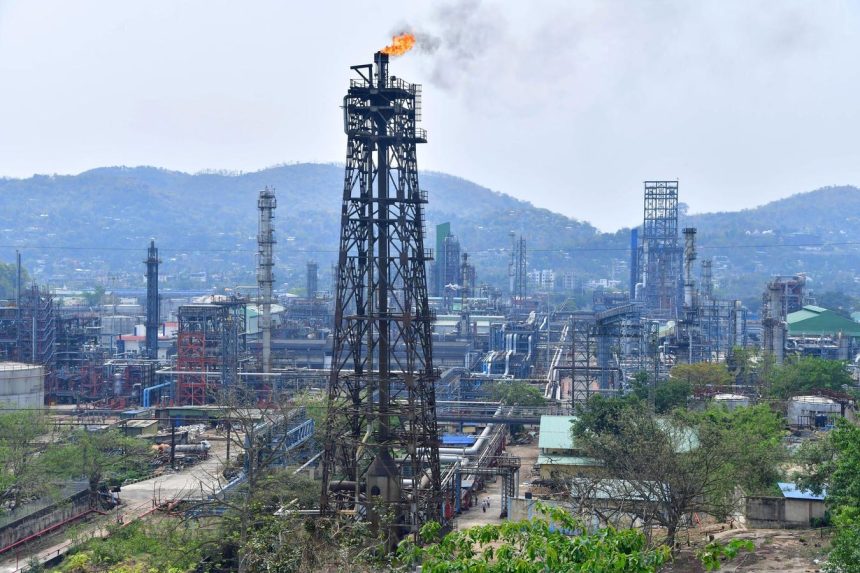India’s opportunistic embrace of discounted Russian oil following the 2022 Ukraine invasion and subsequent Western sanctions has significantly reshaped the global energy landscape. India’s reliance on Russian crude surged from a modest 10% in 2021 to a staggering 40% in the following years, transforming Russia into India’s primary oil supplier. This shift was facilitated by a price cap imposed by Western nations on Russian oil, intended to restrict Moscow’s revenue stream while maintaining global supply. However, this strategy inadvertently created an arbitrage opportunity for nations like India, eager to secure affordable energy resources. This dynamic significantly altered India’s import portfolio, solidifying a substantial energy partnership with Russia.
The mechanics of this burgeoning trade involved a complex network of “shadow tankers,” vessels with obscured ownership structures designed to circumvent Western sanctions and scrutiny. These tankers, often operating outside established regulatory frameworks, became the primary conduit for Russian oil flowing to India. This tactic allowed both nations to sidestep the intended impact of the price cap and maintain a robust trade flow, effectively undermining the West’s efforts to isolate Russia economically. This reliance on shadow tankers, however, raised concerns about transparency and accountability within the global oil market, highlighting the potential for these vessels to be exploited for illicit activities beyond sanctions evasion.
Recognizing the limitations of the initial sanctions regime and the growing reliance on shadow tankers, the United States implemented a new wave of sanctions in early 2024. These measures directly targeted the vessels and maritime insurance providers facilitating the Russian oil trade, including a substantial number of vessels that had previously delivered oil to India. This escalation of sanctions signaled a more assertive American stance aimed at disrupting the well-established trade routes and placing pressure on India to reconsider its reliance on Russian crude. The new sanctions further complicated the intricate web of global oil shipping, potentially increasing costs and complexities for all parties involved.
The impact of these intensified sanctions has spurred India to explore alternative oil sources, prompting a renewed focus on diversifying its energy portfolio. India’s energy policymakers have initiated discussions with traditional suppliers in the Middle East, including Saudi Arabia, the UAE, Kuwait, and Oman, to secure additional supplies and mitigate the potential disruption caused by the U.S. sanctions. This strategic move underlines India’s vulnerability to geopolitical pressures and the necessity of maintaining a balanced approach to energy security. While the immediate impact of the sanctions remains to be seen, India’s proactive pursuit of alternative suppliers suggests a recognition of the changing geopolitical landscape and the need for a more resilient energy strategy.
While the new sanctions present a challenge, India retains some flexibility due to a grace period allowing sanctioned tankers to complete deliveries. Moreover, there are indications that India had already begun diversifying its oil imports even before the latest sanctions were announced, partly driven by a narrowing price differential between Russian crude and other sources, as well as anticipation of further U.S. action. This proactive approach, combined with the grace period, provides India with a window of opportunity to adjust its import strategy without experiencing immediate and severe disruptions to its energy supply. This gradual shift away from Russian oil indicates a pragmatic approach by India, balancing its economic interests with the evolving geopolitical realities.
The future trajectory of India’s oil imports remains uncertain, but the nation’s commitment to energy security and its growing demand position it as a pivotal player in the global oil market. India’s participation in international energy forums, such as India Energy Week, provides a platform to articulate its evolving energy strategy and explore partnerships with diverse suppliers. While India has publicly stated its intention to continue purchasing Russian oil, the extent of this trade in the coming years will depend on a complex interplay of factors, including the effectiveness of sanctions, the availability and pricing of alternative supplies, and the broader geopolitical landscape. India’s pursuit of a diversified energy portfolio, coupled with its substantial energy needs, underscores the country’s increasing influence on the dynamics of global oil trade.



